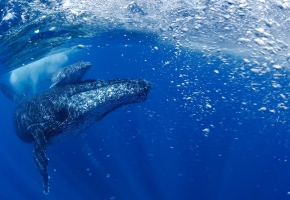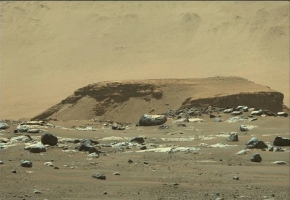Humans pump so much groundwater that Earth’s axis has shifted

Groundwater provides drinking water for people and livestock, and it helps with crop irrigation when rain is scarce. However, the new research shows that persistent groundwater extraction over more than a decade shifted the axis on which our planet rotates, tipping it over to the east at a rate of about 4.3 centimeters per year.
That shift is even observable on Earth’s surface, as it contributes to global sea level rise, researchers reported in the study published in the journal Geophysical Research letters.
“Earth’s rotational pole actually changes a lot,” said lead study author Ki-Weon Seo, a professor in the department of Earth science education at Seoul National University in South Korea. “Our study shows that among climate-related causes, the redistribution of groundwater actually has the largest impact on the drift of the rotational pole.”
You might not be able to feel Earth’s rotation, but it’s spinning on a north-south axis at a rate of about 1,609 kilometers per hour.
Earth’s interior is layered with rock and magma surrounding a dense, hot core. But in the outermost rocky layer, there are also vast quantities of water. Below the planet’s surface, rocky reservoirs known as aquifers are estimated to contain over 1,000 times more water than all the surface rivers and lakes in the world.
Between 1993 and 2010, the period examined in the study, humans extracted more than 2,150 gigatons of groundwater from inside Earth, mostly in western North America and northwestern India, according to estimates published in 2010. To put that into perspective, if that amount were poured into the ocean, it would raise global sea levels by about 6 millimeters.
Groundwater pumping can be a lifeline, particularly in parts of the world that are heavily affected by drought caused by climate change. But subterranean reserves of liquid water are finite; once drained, they are slow to replenish.
And groundwater extraction doesn’t merely deplete a valuable resource; the new findings demonstrate that this activity has unintended global consequences.
Source: CNN







